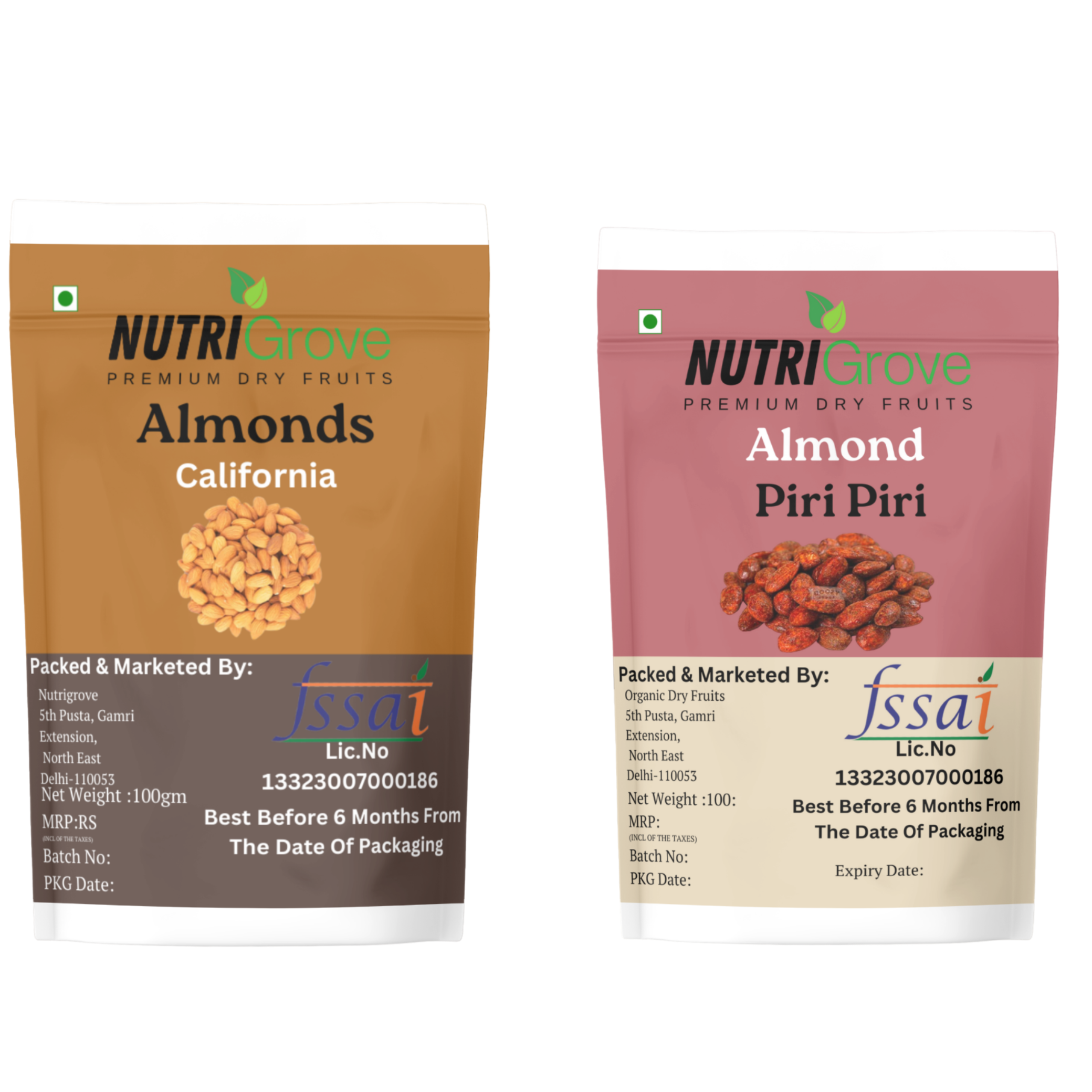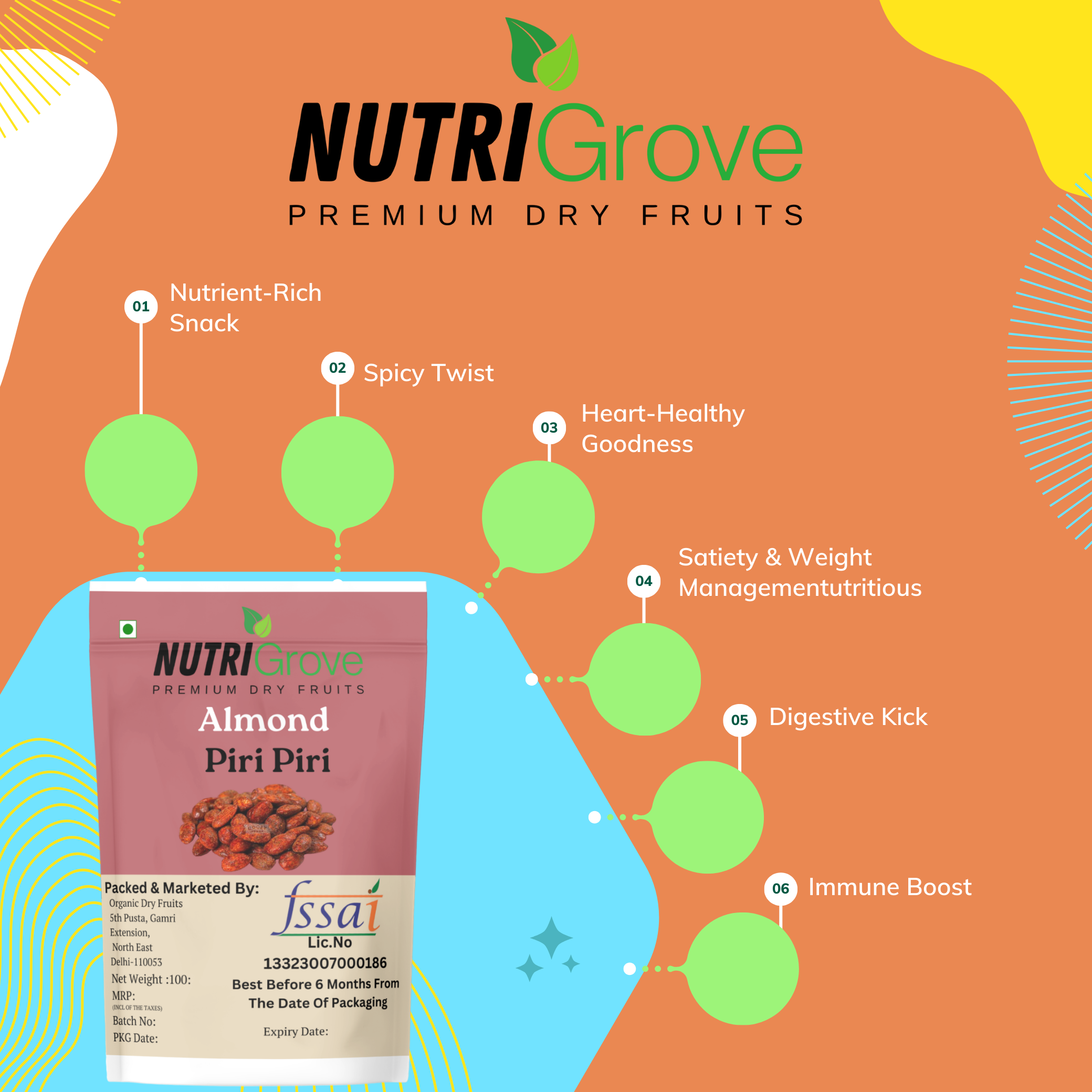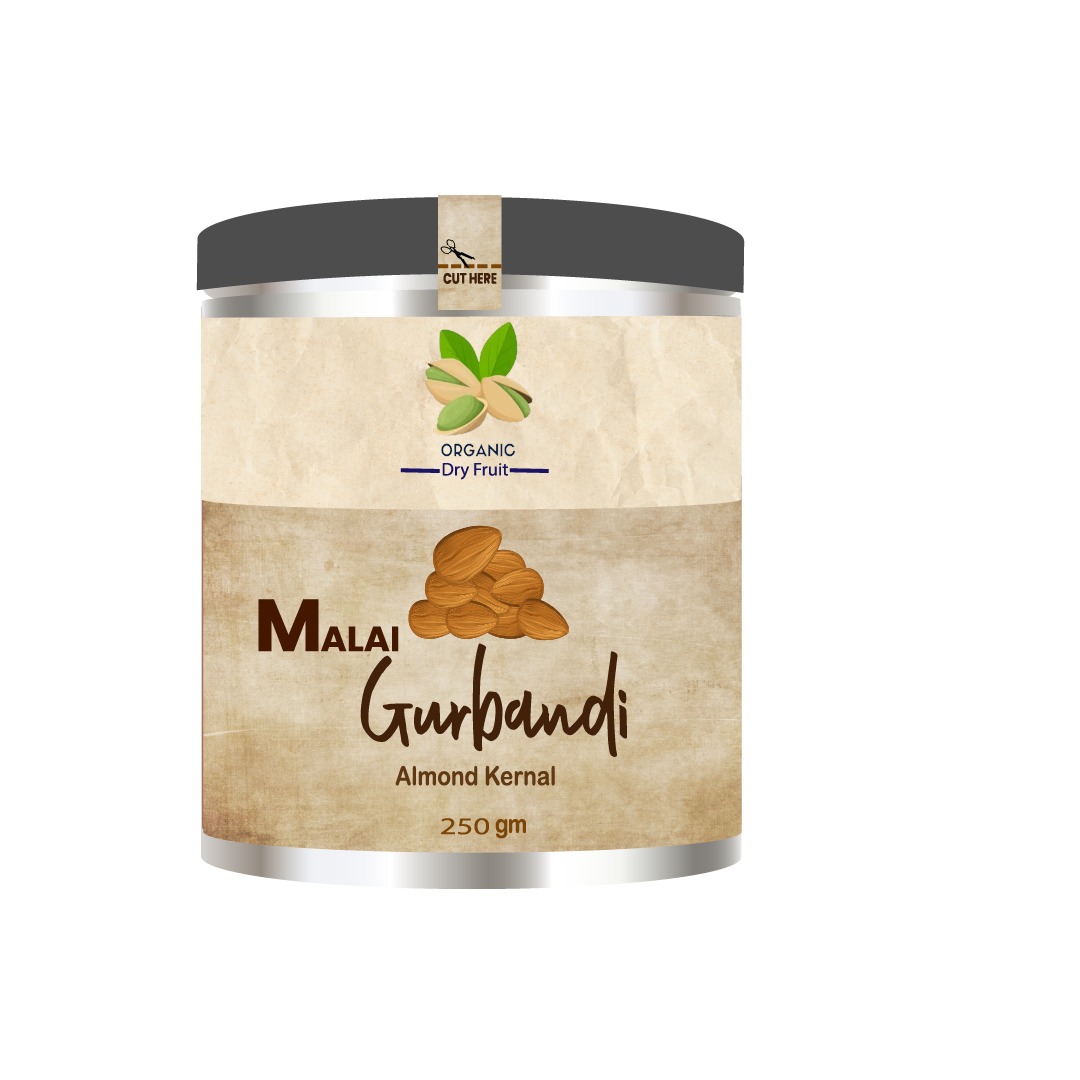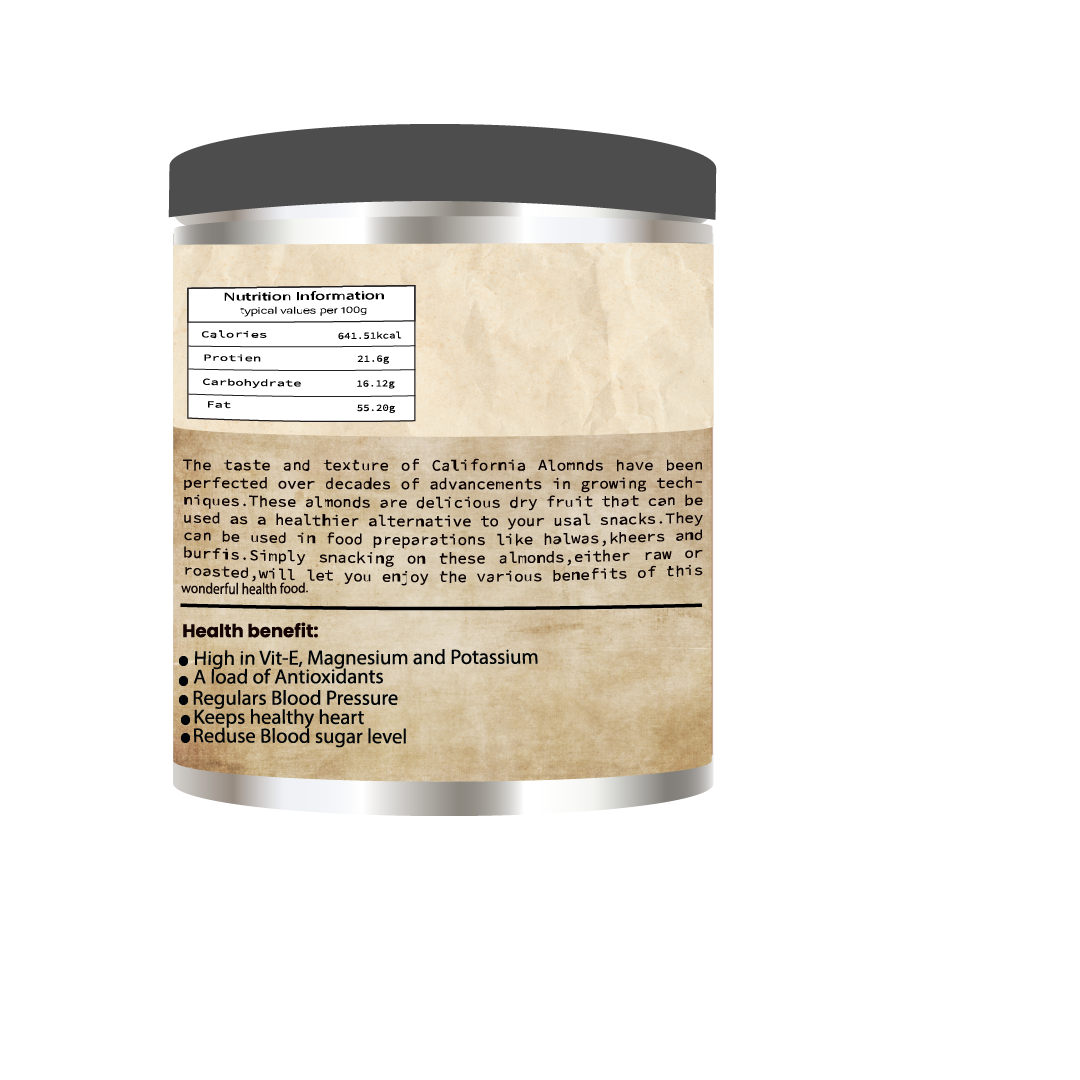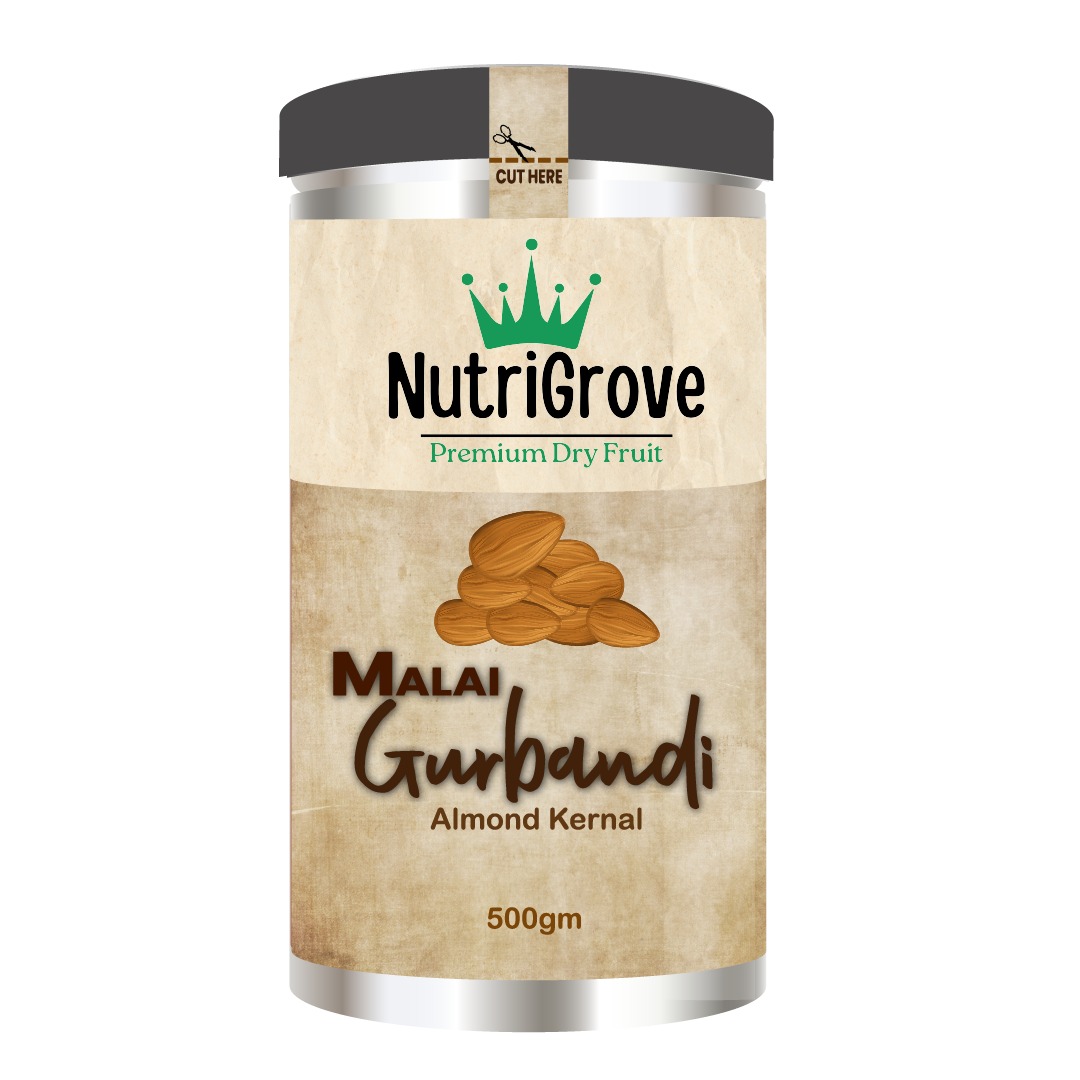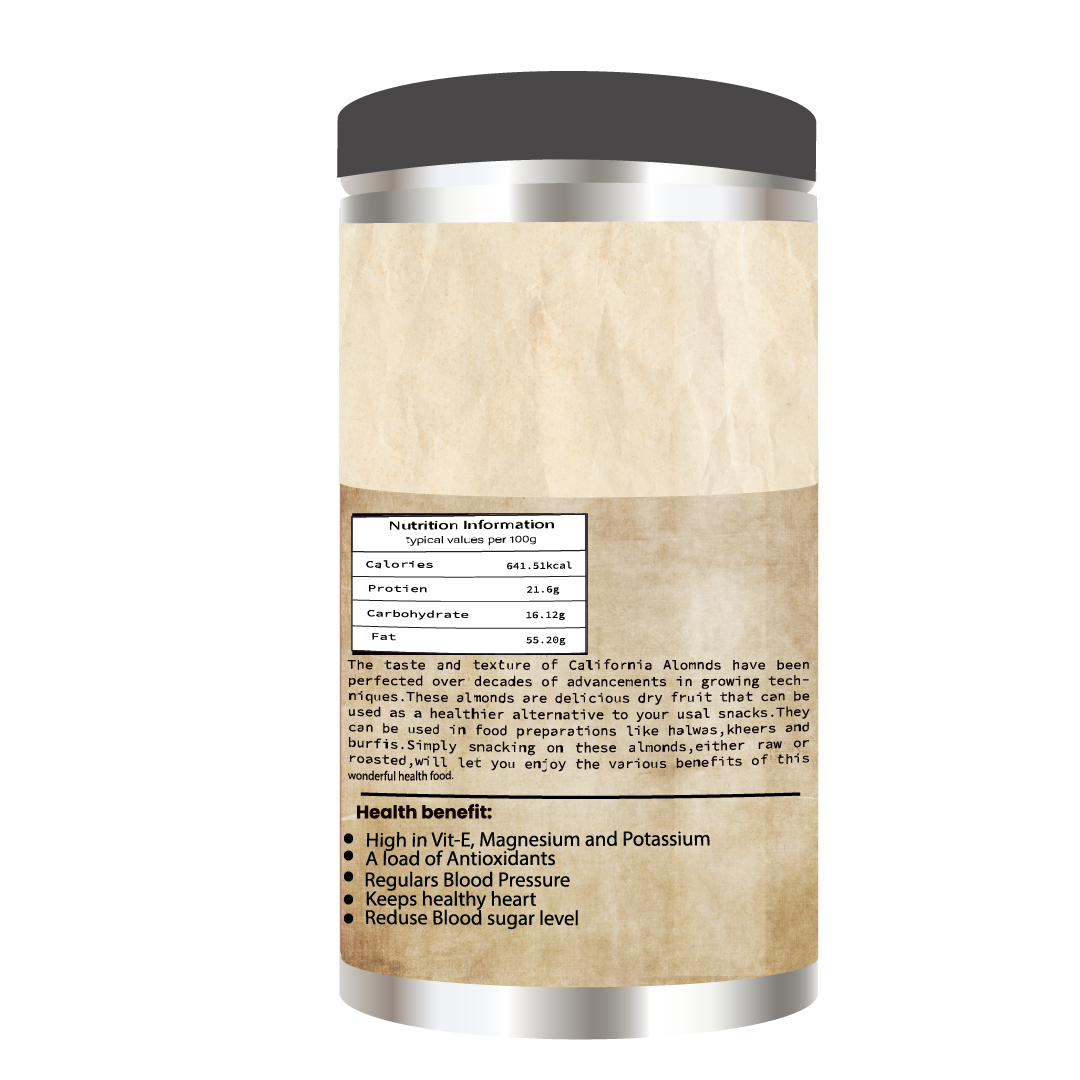Almonds
- Home
- Almonds
Almonds
The Importance of Almonds in a Healthy Diet
Almonds are not only a delicious snack but also a powerhouse of nutrition that can significantly benefit your health. From promoting heart health to aiding in weight management, almonds offer a plethora of advantages that make them an essential component of a balanced diet.
Nutritional Value of Almonds
Almonds are packed with essential nutrients, making them a nutrient-dense food. They are rich in healthy fats, protein, fiber, vitamins, and minerals. A one-ounce serving of almonds provides approximately 6 grams of protein, 14 grams of fat (mostly monounsaturated), and 3.5 grams of fiber.
Macronutrients in Almonds
The macronutrient profile of almonds includes:
- Protein: Almonds are a good source of plant-based protein, making them an excellent option for vegetarians and vegans.
- Fats: While almonds are relatively high in fat, the majority of the fat is monounsaturated fat, which is beneficial for heart health.
- Carbohydrates: Almonds contain carbohydrates, but they are low in sugars, making them suitable for individuals watching their sugar intake.
Micronutrients in Almonds
In addition to macronutrients, almonds are rich in micronutrients such as:
- Vitamin E: Almonds are one of the best sources of vitamin E, an antioxidant that helps protect cells from damage caused by free radicals.
- Magnesium: Almonds are an excellent source of magnesium, which is essential for various biochemical processes in the body, including energy production and muscle function.
- Calcium: Almonds contain calcium, which is vital for maintaining strong bones and teeth.
Health Benefits of Almonds
Heart Health Benefits
Almonds have been associated with several heart-healthy benefits, including:
- Reducing LDL Cholesterol: Studies have shown that almonds can help lower LDL (bad) cholesterol levels, reducing the risk of heart disease.
- Lowering Blood Pressure: The magnesium content in almonds may help lower blood pressure, reducing the risk of hypertension and stroke.
Brain Health Benefits
Consuming almonds regularly may also support brain health by:
- Improving Cognitive Function: The vitamin E and antioxidants in almonds may help protect brain cells from oxidative stress, potentially reducing the risk of cognitive decline.
- Boosting Memory: Some studies suggest that almonds may enhance memory and cognitive function, thanks to their nutrient-rich composition.
Weight Management Benefits
Despite being calorie-dense, almonds can aid in weight management due to:
- Feeling Full: The combination of protein, fiber, and healthy fats in almonds can help increase satiety, reducing overall calorie intake.
- Boosting Metabolism: Almonds contain nutrients like magnesium and B vitamins, which play a role in energy metabolism, potentially aiding weight loss efforts.
Skin and Hair Benefits
Almonds offer numerous benefits for skin and hair health, including:
- Moisturizing Skin: Almond oil is rich in vitamin E and fatty acids, making it an excellent moisturizer for dry skin.
- Strengthening Hair: Almond oil can nourish and strengthen hair, reducing breakage and promoting healthy growth.
Almonds for Energy Boost
Almonds are an excellent source of energy, making them a perfect snack option for when you need a quick pick-me-up.
Almonds as a Source of Energy
The combination of protein, healthy fats, and fiber in almonds provides a sustained release of energy, helping you stay alert and focused throughout the day
Ideal Consumption for Energy
To maximize the energy-boosting effects of almonds, consume them as part of a balanced diet alongside other nutrient-rich foods like fruits, vegetables, and whole grains.
How Almonds Aid in Digestion
Almonds are rich in fiber, which is essential for digestive health.
Fiber Content in Almonds
The fiber in almonds promotes regular bowel movements and helps prevent constipation, keeping your digestive system healthy and functioning smoothly.
Promoting Gut Health
The prebiotic properties of almonds can also support the growth of beneficial gut bacteria, improving overall gut health and digestion.
Almonds for Bone Health
Almonds contain essential nutrients like calcium and magnesium, which are crucial for maintaining strong and healthy bones.
Calcium Content in Almonds
Calcium is vital for bone health, and almonds are a convenient way to incorporate this mineral into your diet, especially for those who are lactose intolerant or avoid dairy products.
Strengthening Bones and Teeth
Regular consumption of almonds can help prevent conditions like osteoporosis and ensure optimal bone density, reducing the risk of fractures and bone-related injuries.
Almonds and Blood Sugar Regulation
Contrary to popular belief, almonds can be beneficial for individuals with diabetes or those at risk of developing the condition.
Effect on Blood Sugar Levels
Almonds have a low glycemic index, meaning they cause a slower and more gradual increase in blood sugar levels compared to high-glycemic foods.
Suitable for Diabetics
Incorporating almonds into a balanced diet can help stabilize blood sugar levels, reduce insulin resistance, and lower the risk of complications associated with diabetes.
Almonds and Skin Health
Almonds are a versatile ingredient that can benefit your skin in various ways.
Vitamin E Benefits
Vitamin E is a powerful antioxidant found in almonds, known for its ability to nourish and protect the skin from damage caused by environmental stressors like UV radiation and pollution.
Almond Oil for Skincare
Almond oil is a popular skincare ingredient that can moisturize, soothe, and rejuvenate the skin, making it suitable for all skin types, including sensitive and acne-prone skin.
Almonds for Hair Growth
The nutrients present in almonds can also promote healthy hair growth and improve hair texture.
Nutrients Promoting Hair Health
Almonds are rich in biotin, a B vitamin essential for maintaining healthy hair, as well as other nutrients like zinc and iron, which play a role in hair growth and strength.
Almond Oil for Hair Care
Applying almond oil to the scalp and hair can nourish the hair follicles, reduce scalp inflammation, and prevent hair loss, resulting in stronger, shinier hair.
How to Incorporate Almonds into Your Diet
There are numerous delicious ways to enjoy almonds as part of your daily diet.
Snack Ideas with Almonds
- Raw Almonds: Enjoy a handful of raw almonds as a quick and convenient snack.
- Almond Butter: Spread almond butter on whole-grain toast or use it as a dip for fresh fruit.
- Trail Mix: Create your own trail mix with almonds, dried fruits, and seeds for a nutritious on-the-go snack.
Recipes Featuring Almonds
- Almond-Crusted Chicken: Coat chicken breasts in crushed almonds and bake for a healthy and flavorful main dish.
- Almond Milk Smoothie: Blend almond milk with your favorite fruits and vegetables for a creamy and nutritious smoothie.
- Almond-Quinoa Salad: Toss cooked quinoa with chopped almonds, vegetables, and a tangy vinaigrette for a satisfying salad.
Buying and Storing Almonds
To ensure the quality and freshness of almonds, follow these tips for buying and storing them properly.
Tips for Purchasing Almonds
- Check for Freshness: Choose almonds that are plump, uniform in size, and free from any signs of mold or rancidity.
- Buy in Bulk: Consider purchasing almonds in bulk from reputable suppliers to ensure freshness and cost-effectiveness.
Proper Storage Techniques
- Store in a Cool, Dry Place: Keep almonds in an airtight container in a cool, dry place away from direct sunlight to maintain their flavor and texture.
- Refrigerate or Freeze: For long-term storage, refrigerate or freeze almonds to extend their shelf life and prevent them from becoming rancid.
Potential Allergies and Precautions
While almonds offer numerous health benefits, it’s essential to be aware of potential allergies and take necessary precautions.
Allergic Reactions to Almonds
Some individuals may be allergic to almonds or other tree nuts, experiencing symptoms ranging from mild itching and hives to severe anaphylaxis.
Precautions for Consumption
- Consult with a Healthcare Professional: If you have a known nut allergy or any concerns about consuming almonds, consult with a healthcare professional before including them in your diet.
- Practice Moderation: Despite their health benefits, almonds are calorie-dense, so it’s essential to consume them in moderation as part of a balanced diet.
Almonds in Different Cuisines
Almonds are a versatile ingredient used in various cuisines around the world, adding flavor, texture, and nutrition to a wide range of dishes.
Almonds in Mediterranean Cuisine
In Mediterranean cuisine, almonds are commonly used in both savory and sweet dishes, such as:
- Almond-Crusted Fish: Fish fillets coated in crushed almonds and herbs, then baked or pan-seared for a crispy, flavorful crust.
- Almond Baklava: A traditional dessert made with layers of phyllo dough, chopped almonds, honey, and spices, baked to golden perfection.
Almonds in Indian Cuisine
In Indian cuisine, almonds are a staple ingredient in various dishes, including:
- Badam Milk: A creamy almond milk flavored with saffron, cardamom, and rose water, enjoyed as a refreshing beverage or dessert.
- Almond Halwa: A rich and indulgent dessert made from almonds, ghee, sugar, and spices, often served during festivals and special occasions.
Sustainability of Almond Farming
As the demand for almonds continues to grow, it’s essential to consider the sustainability of almond farming practices.
Environmental Impact of Almond Farming
Almond farming can have both positive and negative environmental effects, including:
- Water Usage: Almonds require a significant amount of water to grow, leading to concerns about water scarcity in regions with intensive almond cultivation.
- Biodiversity: Almond orchards can provide habitat for pollinators like bees, contributing to biodiversity and ecosystem health.
Sustainable Practices
To mitigate the environmental impact of almond farming, growers are adopting sustainable practices such as:
- Water Conservation: Implementing drip irrigation systems and water-efficient farming techniques to minimize water usage and improve efficiency.
- Regenerative Agriculture: Incorporating cover crops, crop rotation, and soil health management practices to enhance soil fertility and reduce reliance on synthetic inputs.
Conclusion
In conclusion, almonds are not just a tasty snack but also a nutritional powerhouse that offers a wide range of health benefits. From supporting heart health and brain function to promoting healthy skin and hair, almonds are a versatile ingredient that can be enjoyed in various ways as part of a balanced diet. By incorporating almonds into your daily routine, you can enhance your overall well-being and enjoy the numerous advantages they have to offer.
FAQs (Frequently Asked Questions)
- Are there any side effects of consuming almonds regularly?
- While almonds are generally safe for most people, consuming them in excess may lead to weight gain due to their high calorie content. It’s essential to practice moderation and incorporate almonds into a balanced diet.
- Can almonds help with weight loss?
- Yes, almonds can aid in weight loss due to their combination of protein, fiber, and healthy fats, which promote satiety and reduce overall calorie intake. However, it’s important to control portion sizes and monitor total calorie consumption.
- Are there any alternatives for individuals with nut allergies?
- For individuals with nut allergies, there are several alternatives to almonds, such as sunflower seeds, pumpkin seeds, or soy nuts. These alternatives offer similar nutritional benefits without the risk of allergic reactions.
- Is almond milk a suitable substitute for dairy milk?
- Yes, almond milk can be a suitable substitute for dairy milk for individuals who are lactose intolerant or following a vegan diet. It is lower in calories and contains no cholesterol, making it a healthier option for those looking to reduce their intake of animal products.
- How should almonds be included in a child’s diet?
- Almonds can be a nutritious snack for children when consumed in moderation. To reduce the risk of choking, consider offering sliced or finely chopped almonds to younger children and supervising their consumption to ensure safe eating practices.


